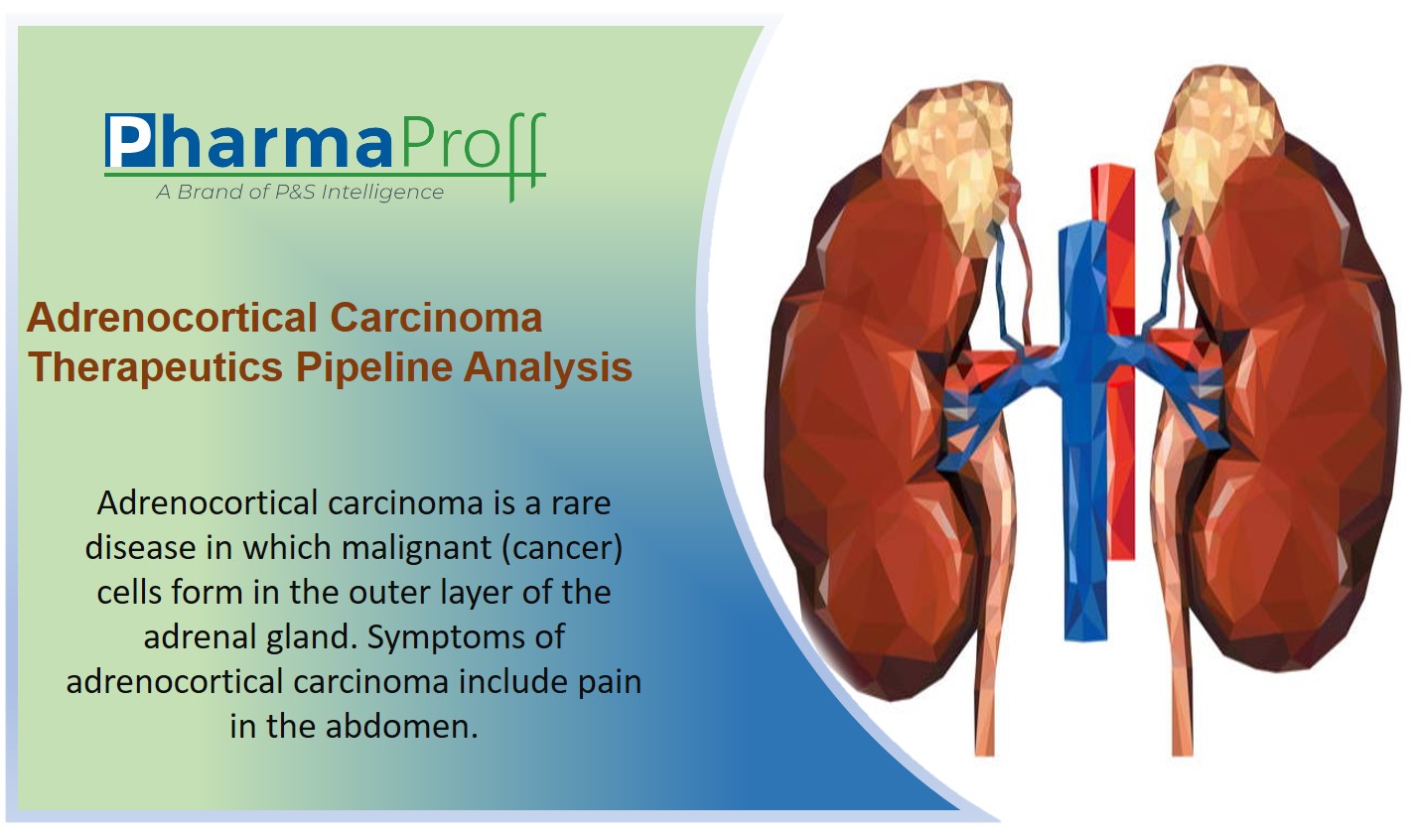Adrenocortical carcinoma, also known as adrenal cortex carcinoma, is a rare form of cancer that occurs at the cortex layer of the adrenal gland. There are two adrenal glands present in the human body: one at the top of each kidney.
Each adrenal gland is comprised of two distinct structures: the outer part of the adrenal glands (adrenal cortex) and the inner region (adrenal medulla). Some of the genetic condition that can cause adrenocortical carcinoma are Li-Fraumeni syndrome, Carney complex, and Beckwith-Wiedemann syndrome.

Some of the most common symptoms of this medical condition includes abdominal pain, lump in the abdomen, and feeling of fullness. The disease can be diagnosed by imaging technique such as computed tomography (CT) scan, magnetic resonance imaging (MRI), biopsy, blood tests, and urine tests. Millendo Therapeutics Inc. is in the process of developing ATR-101 as an acetyl CoA C-acetyltransferase inhibitor for the treatment of adrenocortical carcinoma.
Merck & Co., Inc. is also in the process of developing pembrolizumab as a CD274 antigen inhibitor for the treatment of adrenocortical carcinoma. Some of the other companies and universities having the pipeline drug for adrenocortical carcinoma includes the Columbia University, Medunik Canada Inc., HRA Pharma, and others.
For more information about Adrenocortical Carcinoma Therapeutics pipeline analysis request to get a sample report at: https://www.pharmaproff.com/request-sample/1109

